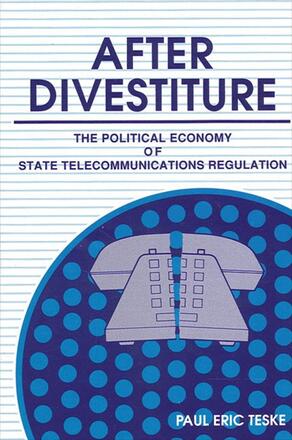
After Divestiture
The Political Economy of State Telecommunications Regulation
Alternative formats available from:
Description
This book analyzes the politics of state regulatory decision-making in telecommunications after the AT&T divestiture in 1984. The author takes a political-economy approach that explains how interest groups and institutional factors have shaped different state policies. He shows that the structure and composition of state regulatory institutions have important effects on pricing and competition in the telecommunications industry.
The innovative methodology of this work combines qualitative empirical analysis from the entire U. S. with case studies of eight states. It identifies the deregulation winners and losers by examining the impact of changes in local and long-distance price structures on different groups, including users of telecommunications services, small businesses, residential consumers, and rural residents. The book includes recommendations for improving state policy.
Paul E. Teske is Assistant Professor of Political Science and Public Management at the State University of New York at Stony Brook, and is an Affiliated Research Fellow with the Center for Telecommunications and Information Studies of Columbia University.
Reviews
"Teske's work avoids the pitfalls of previous work and exhibits the methodological quality now found in good empirical political science. He shows excellent command of economics and political science as well as a nuanced careful understanding of empirical methods. He orchestrates his conclusions using a variety of multivariate and case-study techniques such that the whole is greater than the sum of its parts. His most important finding is that regulatory orientation matters. " — Peter VanDoren, Woodrow Wilson School of Public and International Affairs, Princeton University